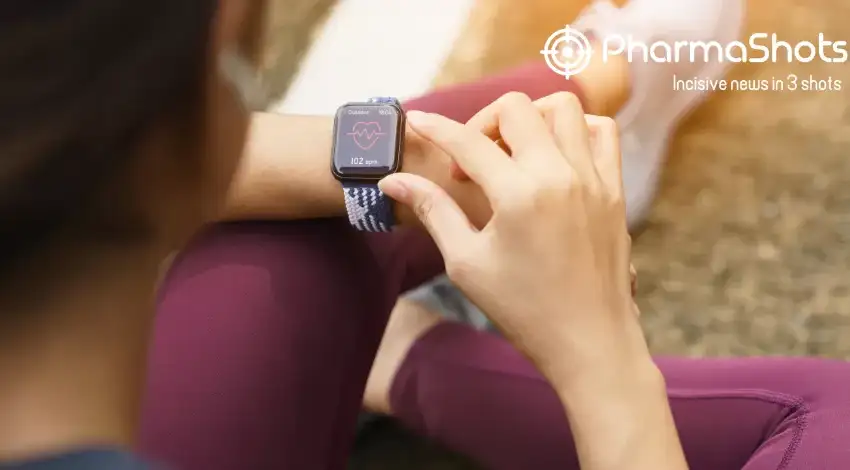Take Home Technology to Help You Self-Manage Your Healthcare
Taking control of your health at home has never been easier with the advent of accessible and user-friendly health technology. Such devices enable individuals to observe, monitor and act on their ailments without constantly traveling to a clinic or suffering the financial expense of doing so.
Wearable Devices
Wearables such as fitness trackers and smartwatches are transforming home health monitoring. They constantly monitor heart rate, oxygen in the blood, sleep patterns and physical activity and they provide users with a clear picture of daily wellness. A number of these wearables also give users a warning of anomalies, prompting preventive and early action. Smartphones also enable the transfer of data to healthcare providers in order to benefit from personalized treatment plans. Furthermore, they have long-life batteries and are water-resistant, hence they are reliable tools for sustained, uninterrupted monitoring of vital health parameters day and night.
Automated Cell Counters
For patients who need frequent blood analysis, an automated cell counter presents the perfect at-home solution. Often utilized in cancer surveillance, infection and autoimmune diseases, digital cell counters count various blood cell populations via minute samples. Designed to be compact and have straightforward interfaces, they can be used at home without the need to visit labs repeatedly. Results may be uploaded immediately to healthcare systems for prompt analysis and action. Some newer models also include Bluetooth connectivity and cloud storage capabilities for sharing with healthcare providers and retaining long-term records.
Intelligent Pill Dispensers
For individuals with chronic conditions or taking numerous drugs, pill minders bring peace of mind. The devices sort out the pills by dose and time and remind users via alarm or cellphone alert. Some gadgets also alert caregivers in the event of a missed dose, lowering the frequency of missed medication. With slimmer profiles and simple trays to load, pill minders marry aesthetics and usability to make daily routines easier to follow. Some newer models also come with remote access via mobile applications, where the caregiver or family member can load and redeploy the schedule from another location.
Tracking Apps
Health management applications are also more and more being designed to target particular conditions like diabetes, asthma, or mental health. Such applications enable users to report symptoms, mark improvements and draw upon educational material. By recording in-depth details of day-to-day health, the applications enable users to identify patterns and present insightful data at medical consultations. Several applications also offer motivational responses, thus acting as useful companions for long-term care. Personalized goal-setting capabilities, medication reminders and telemedicine connectivity add to the apps’ practicality and enable users to establish more control over the wellness process.
Virtual Consultations
Video consultations and telemedicine platforms make it easier to get consultations from healthcare professionals in the comfort of your home. Telemedicine and video calls minimize travel time, wait time and the anxiety of going to the clinic, especially for the mobility-challenged and the immunosuppressed. Document sharing, prescription refills and secure communication with the medical team are also facilitated by most of these platforms. With growing acceptance in the post-pandemic era, telemedicine has become an integral aspect of contemporary healthcare. Better compatibility with wearables and remote monitoring gadgets has also enabled virtual consultations to become better informed and efficient than ever before.
Regular Monitoring Tools
Tracking weight and blood pressure allows for the earliest indications of impending health issues such as heart disease or kidney disease and fortunately, there are tools that can be used regularly to help with this. Digital BP meters and intelligent scales take readings and upload them to health apps, providing easily accessible patterns over time. Such devices make users more vigilant about health, but also give doctors trustworthy data to analyze. Some also measure metrics such as body fat, BMI, or heart rate for a complete picture. Some of them include multiple users as well and the entire family can take advantage of one device for better health management.
Cardiac Support
Home-use compact ECG monitors now exist, enabling patients with cardiac ailments to monitor rhythm and rate in real time. The gadgets are capable of sensing abnormalities like arrhythmias and yielding results in seconds and that’s the key to timely treatment. In many instances, they come linked to mobile applications for the storage and transfer of data in real time to cardiologists. With regard to affordability and ease of use, they have become a necessity for individuals who take charge of maintaining heart health. Some of them also have AI-driven analytics, with automatic reports and alerts to enable users to identify whether something needs medical intervention.
Voice-Controlled Assistants
Home assistants such as Alexa or Google Assistant may assist with healthcare routines in the form of medication reminders, reminders to hydrate, or reminders for scheduled appointments. Such devices also have the ability to interface with healthcare applications and medical devices to offer voice-controlled access to data. For people with impaired mobility or eyesight, voice commands create an empowering and accessible means of control over health. With advancements in technology, the role of such devices in healthcare applications keeps growing. Telehealth services and medication trackers’ new integrations make the assistants increasingly helpful in controlling daily care.




